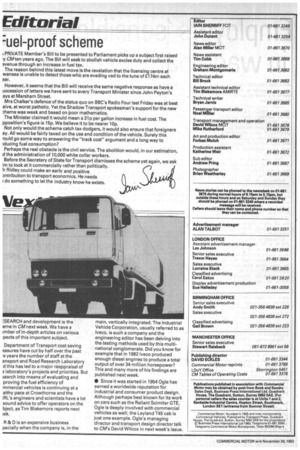kiel-proof scheme
Page 4

If you've noticed an error in this article please click here to report it so we can fix it.
I PRIVATE Member's Bill to be presented to Parliament picks up a subject first raised y CMten years ago. The Bill will seek to abolish vehicle excise duty and collect the avenue through an increase in fuel tax.
The reason behind this latest move is the revelation that the licensing centre at wansea is unable to detect those who are evading ved to the tune of £174m each ear.
However, it seems that the Bill will receive the same negative response as have a uccession of letters we have sent to every Transport Minister since John Peyton's ays at Marsham Street.
Mrs Chalker's defence of the status quo on BBC's Radio Four last Friday was at best aive, at worst pathetic. Yet the Shadow Transport spokesman's support for the new :theme was weak and based on poor mathematics.
The Minister claimed it would mean a 31p per gallon increase in fuel cost. The pposition's figure is 15p. We believe it to be nearer 10p.
Not only would the scheme catch tax dodgers, it would also ensure that foreigners ay. All would be fairly taxed on the use and condition of the vehicle. Surely this ,ould go some way to answering the "track cost" argument and a long way to )ducing fuel consumption?
Perhaps the real obstacle is the civil service. The abolition would, in our estimation, d the administration of 10,000 white collar workers.
Before the Secretary of State for Transport dismisses the scheme yet again, we ask im to look at it commercially rather than politically. Ir Ridley could make an early and positive pntribution to transport economics. He needs do something to let the industry know he exists.




























































































